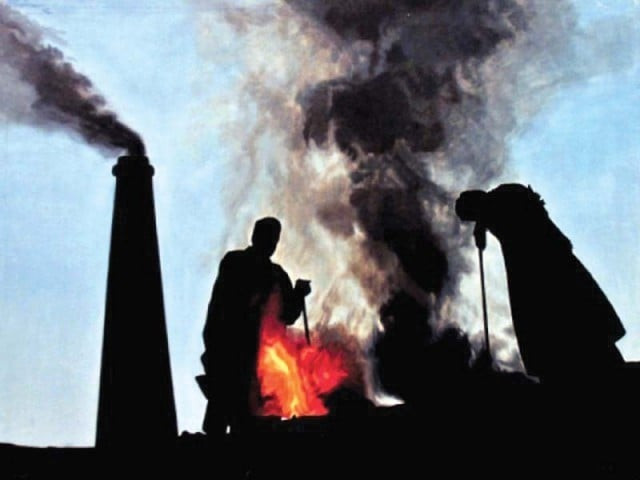Brick kilns start switching to zigzag technology
Lab tests declare air quality of twin cities as satisfactory

Following the strict directions of the Supreme Court of Pakistan, kiln owners across the Rawalpindi district have started installing new environmentally friendly zigzag technology brick kilns.
Setting an example, the office bearers of the Brick Kiln Owners Association have switched to the zigzag kiln technology, which reduces carbon emission and helps reduce pollution. There are a total of 400 kilns in the twin cities of Rawalpindi and Islamabad. Environment Protection Agency (EPA) Rawalpindi Deputy Director Amin Baig, when contacted by The Express Tribune said that so far 21 out of 400 kilns have installed new technology. Owners of more than 30 kilns were busy in getting their kilns converted to the environment-friendly zigzag technology, Baig said. Moreover, all stone crushing machines in Taxila and Margalla Hills have been ordered to switch to eco-friendly technology till December 31. No stone crushing machine will be allowed to operate in Rawalpindi district without it, the EPA deputy director said. He reminded that the Lahore High Court (LHC) too has dismissed the petitions and intra-court appeals of the kiln owners against the orders for the installation of new technology.
EPA has set a deadline of December 31 for all kiln owners to install new technology and announced that no kiln will be allowed to operate without it from January 1, 2021. All kilns operating without the eco-friendly zigzag will be sealed, Baig said. In order to control smog, all kilns are closed from November 7 to December 31 across Punjab. After this ban, all kilns will fire up from January 1, albeit there would be no black smoke coming from the chimneys of brick kilns having zigzag technology. Meanwhile, notices have been issued to kiln owners to complete the installation of new technology. Brick Kiln Owners Association Secretary General Chaudhry Raheel said that zigzag technology is very expensive. “If we are given a target, we can eliminate the black smoke from kiln chimneys in a very cheap way,” Raheel said adding, "If we are only asked to eliminate toxic black smoke, we will take steps to eradicate it by using indigenous methods.”
The new zigzag technology was developed in Nepal. “There is a difference between the Nepal's soil and ours," he said. A large number of kiln owners are installing the zigzag out of fear of legal action. “We want to solve this problem in a better way,” the brick kiln owners representative said. According to the sources of the Department of Environment, new technology has been installed on most of the kilns in that Rawat area which feeds the large brick market at Losar.
Air quality satisfactory
EPA has declared the air quality of the twin cities of Rawalpindi and Islamabad as satisfactory after special testing on Friday. The mobile laboratory of EPA stationed at Rawalpindi Commissioner Office to collect samples of Katcheri Chowk went to Lahore to get the samples tested, EPA Deputy Director Baig said. Besides collecting samples from the city centres of Rawalpindi and Islamabad, the mobile lab team collected samples from Taxila, Margalla Hills and Rawat to assess the environmental pollution, he said. The EPA laboratory at the provincial capital conducted tests to assess the air quality of the twin cities and declared the air quality of the twin cities satisfactory. The improved air quality was attributed to reduction in particulate matter in the air following intermittent rain in Rawalpindi and Islamabad. Baig said that air quality tests of areas close to stone crushing machines and coal tar making plants was in progress.



















COMMENTS
Comments are moderated and generally will be posted if they are on-topic and not abusive.
For more information, please see our Comments FAQ